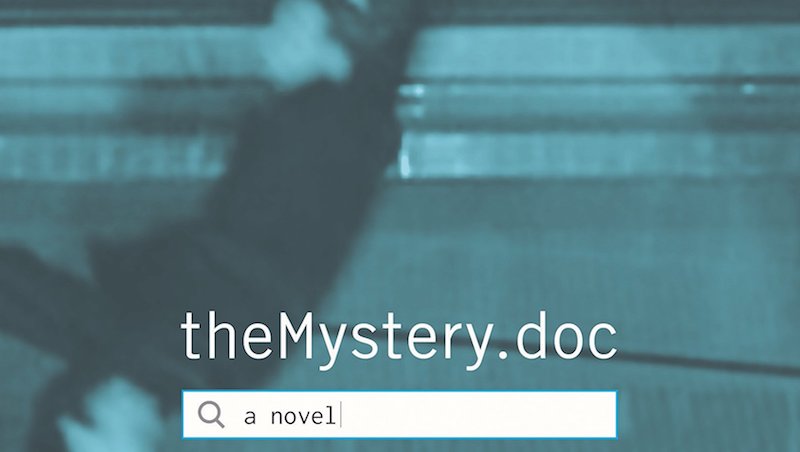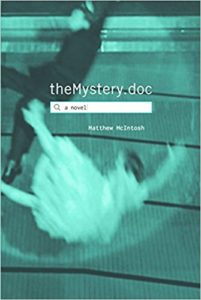

“Perhaps the most useful way to think about theMystery.doc is as an experiential novel, one we live with (or through), rather than read. A pastiche, a collection of moments that both connect and don’t, it blurs the line between text and image, fact and fiction; it is not postmodern but post-postmodern, or maybe none of the above. At the same time, it is surprisingly accessible for such a long book: not a critique of meaning so much as an evocation of meaning’s aftermath—an expression, in other words, of the chaotic culture in which we live … All of this, of course, is meant to signify upheaval, of both the personal and the cultural variety. The mystery, it should come as no surprise, is the mystery: the stomach-dropping question of why we are alive. We often dismiss that issue as sophomoric, but that’s part of the point of a book such as this, which takes it on faith that literature, that art, should address the largest questions, even (or especially) when we know they can’t be answered in any satisfying terms … but for all the novel’s self-awareness, its questioning of form and content, theMystery.dochas larger concerns. Here we are, back to post-postmodern, since McIntosh is not trying to be ironic but rather seeks a disarming vulnerability. It may seem strange to call a 1,660-page novel intimate, and yet this is what McIntosh is after, to mine the depths of a particular set of points of view. If narrative is all we have, our source of meaning, what happens when it is not enough?”
–David L. Ulin, 4Columns, October 6, 2017


